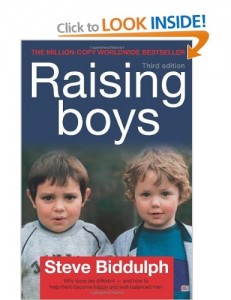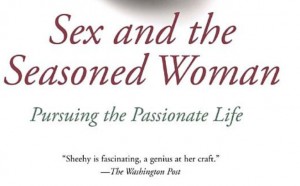Shadow work and sexual pleasure
Shadow work involves exploring the unconscious parts of yourself—your “shadow”—that you might suppress, ignore, or deny. These hidden aspects can stem from past experiences, emotional wounds, or ingrained beliefs. By bringing them to light, you can heal and integrate them, fostering self-awareness and deeper connections with others.
When it comes to improving sexual relationships after 50, shadow work can be transformative in several ways. To start with, many people carry unresolved emotional baggage from past relationships, childhood, or cultural conditioning, which can manifest as shame, guilt, or fear around sex and intimacy. Shadow work helps identify and heal these underlying emotions, releasing inhibitions and fostering more open, honest communication with a partner. For example, you might have developed certain beliefs about aging and sexuality, such as feeling less attractive or capable. Through shadow work, you can address these internalized negative beliefs, embrace your sexuality, and feel more confident in intimate moments.
As couples age, it’s common for sexual desire to shift or decrease due to various factors like hormonal changes, stress, or routine. Shadow work can help uncover the subconscious blocks or unresolved emotions that may contribute to a lack of desire. By exploring hidden feelings of resentment, fear of vulnerability, or even boredom, you can reignite passion and strengthen your emotional and physical bond.
Sexual intimacy is deeply connected to emotional vulnerability. Shadow work can help you recognize patterns where you may have withheld your true emotions or desires, either out of fear of rejection or past experiences of being hurt. By facing these shadow aspects, you become more comfortable expressing your needs and desires, leading to deeper intimacy and better communication with your partner.
For instance, you may realize that you’ve been avoiding certain topics or desires because of past shame or embarrassment. Once you bring those feelings into awareness, you can talk openly with your partner, creating a space where both of you can explore your sexuality without judgment.
Cultural or familial conditioning often instills shame or guilt around sex, especially as people age. Shadow work can help uncover the origins of these feelings and release them. This process allows you to redefine your sexual identity, feeling more empowered and liberated in your sexuality regardless of age. For example, society might imply that sexual activity after a certain age is less important or desirable. Shadow work can challenge these limiting beliefs, helping you embrace your sexuality in a more authentic and fulfilling way.
Shadow work fosters greater self-awareness, which enhances emotional intimacy with your partner. By exploring and integrating hidden fears, doubts, or insecurities, you become more attuned to your partner’s emotional world as well. This shared vulnerability deepens the emotional connection, which often translates into more fulfilling sexual experiences. This book will explain shadow work and the human archetypes of King, Warrior, Magician and Lover.
As you both do shadow work, you can learn to see each other more fully, appreciating not just the physical connection but the deeper emotional bond that intimacy provides. Sexuality naturally evolves over time. Shadow work helps you embrace this evolution without judgment or fear. You may discover new aspects of your sexual self that you hadn’t explored before, which can bring a sense of renewal to your relationship. Whether it’s exploring different forms of physical intimacy or redefining what pleasure means for both of you, shadow work can open new doors to satisfying sexual experiences.
For those over 50, shadow work can be a powerful tool to enhance sexual relationships by addressing deep-seated emotions, improving communication, and reigniting passion. It’s about fostering a more open, vulnerable, and authentic connection with both yourself and your partner. By doing this inner work, you can cultivate a more fulfilling and intimate sexual relationship that transcends age-related barriers.
Archetypes and sexual pleasure
In the context of archetypes, which are symbolic patterns of human behavior and personality, there are certain male and female archetypes that strongly relate to sexual pleasure and intimacy. These archetypes embody different energies, emotions, and aspects of desire that influence how people express and experience their sexuality. Below are some of the key archetypes for both men and women that are closely connected to sexual pleasure.
Female Archetypes Related to Sexual Pleasure
The Lover archetype embodies sensuality, passion, playfulness, eroticism, and emotional connection, pleasure, and passion. S/he is fully in touch with his/her body, emotions, and sensuality. The Lover seeks intimacy, connection, and indulgence in physical pleasure. She embraces her sexuality openly and without shame, making her deeply connected to the experience of sexual pleasure and intimacy.
Women embodying the Lover archetype often feel free to explore their sexuality, indulge in pleasure, and connect emotionally with their partners during intimate moments. This archetype encourages being fully present in the moment and enjoying the sensuality of touch and connection.
The Queen
The Queen archetype is deeply confident and rooted in her own power, confidence, sovereignty, nurturing, and deep connection.. She knows her worth and commands respect, both in and out of the bedroom. Her sexuality is grounded in confidence and emotional intelligence, and she seeks pleasure in deep, committed connections. Sexual pleasure for the Queen is often enhanced through emotional bonding and a sense of being honoured and cherished. Her sexual expression is often deeply satisfying when it is combined with emotional intimacy and mutual respect, elevating her sexual experiences.
The Wild Woman
The Wild Woman archetype is raw, uninhibited, and in touch with her primal instincts. She seeks pleasure that is intense, spontaneous, and untamed, often disregarding societal expectations or constraints. The Wild Woman is all about exploring her sexual energy in a liberated and fearless way. Her sexual pleasure often comes from following her instincts and fully embracing her body’s desires without holding back. She thrives in passion and intensity, making her sexual encounters deeply fulfilling and exhilarating.
The Priestess
Spirituality, intuition, mysticism, and sacred sexuality help the Priestess archetype see sexual pleasure as a sacred, transformative experience. She approaches intimacy with a sense of spirituality and views sexual encounters as a way to connect with the divine or higher self. For the Priestess, sexual pleasure is more than just physical; it’s an act of spiritual union and deep connection with both oneself and a partner. Her sexual experiences are often heightened by rituals, mindfulness, and an intention to align with higher states of consciousness through sex.
Male Archetypes Related to Sexual Pleasure
The Lover
Like the female counterpart, the male Lover archetype is deeply in touch with his senses, emotions, and the power of intimacy. He experiences sexual pleasure as an emotional and physical union, seeking to connect with his partner on multiple levels. The Lover is fully present in intimate moments and derives pleasure from both giving and receiving. He seeks to please his partner as much as he wants to be pleased, making the sexual experience a mutual exploration of passion, touch, and emotional connection.
The King
The King archetype is powerful, confident, and deeply secure in his masculinity. He takes responsibility in his relationships and is a protector and provider. When it comes to sexuality, he exudes confidence and a strong desire to satisfy his partner. The King archetype derives sexual pleasure from being in control, but not in a dominating or selfish way. His pleasure comes from deeply satisfying his partner and ensuring that both partners feel fulfilled. Read about Finding the King archetype‘s confidence and qualities – all of which make sexual encounters satisfying for both parties, as the King leads with strength and presence.
The Warrior
The Warrior archetype is fierce, assertive, and physically powerful. His approach to sexuality is driven by passion, physicality, and an intense desire to conquer and protect. He values strength and often experiences sexual pleasure in a more primal, instinctual way. The Warrior archetype seeks pleasure through physical intensity and enjoys expressing his dominance in consensual, passionate encounters. The Warrior has sexual energy which may be raw and aggressive, yet balanced by a deep sense of protection and loyalty toward his partner.
The Magician
The Magician archetype is mysterious, creative, and in touch with the deeper, unseen aspects of reality. He brings a sense of playfulness, surprise, and mysticism to his relationships, making his sexual experiences unpredictable and exciting. The Magician archetype thrives on creating an atmosphere of mystery and intrigue in his intimate encounters. His sexual pleasure often comes from experimentation, novelty, and the ability to transform the mundane into the magical. He is open to exploring new ideas, fantasies, and experiences to heighten pleasure for both himself and his partner.
As you can see, the Lover archetype is central to both male and female expressions of sexual pleasure, emphasizing sensuality, passion, and emotional connection. For men, archetypes like the King and Warrior highlight confidence, strength, and primal desire, while the Magician adds an element of creativity and mystery. For women, the Queen and Wild Woman bring forth themes of confidence, power, and untamed sensuality, while the Priestess offers a deeper, spiritual approach to sexuality.
 Later, as they let the children go, they move into the adventures of midlife and the menopause…no wonder a woman has the experience of and ability to cope with change!
Later, as they let the children go, they move into the adventures of midlife and the menopause…no wonder a woman has the experience of and ability to cope with change!
